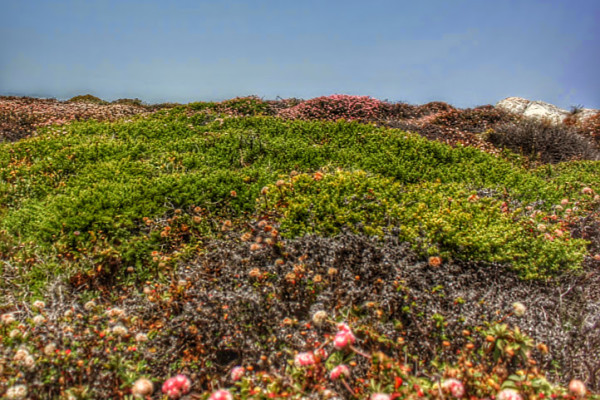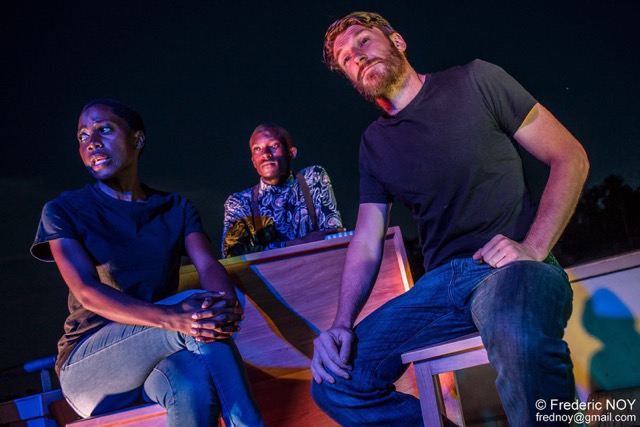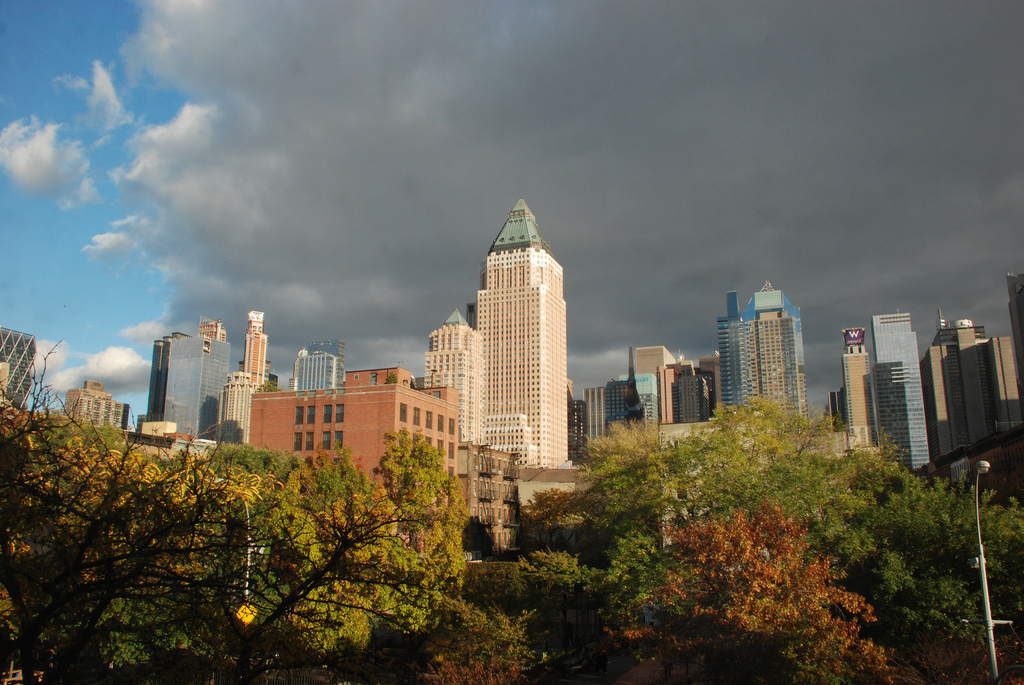Toni Muñoz-Hunt is a published author, model, designer, and women’s rights activist. As founder of the lifestyle blog Modelbehaviors.comand author of relationship column DFW Style Daily’s Model Behaviors series, it has been her life’s mission to create a collective space for multidimensional, multitasking women who want to do it all and can. Because according to Toni, “Looking good, feeling good, and being the best version of you is always within reach.”
El Bowie Bakery
Growing up, Sundays were less about Mass and more about spending time with Grandma, and if I made it to church early enough, I’d help her ready Padre’s robe and the small offering baskets lined with dark velvet. María Refugio Enriquez Cruz Muñoz never missed Mass, and when Padre wasn’t at church, he even frequented the house to get her advice on his lectures, and…well…there was always a home cooked meal—chile Colorado, mole, rellenos, menudo, and posole. Something wonderful always simmered on the stove.
And like a giant sarape, the rich spices weaved a soothing aroma around my memories. I was simple. Grandma’s tortillas were what I lived for, spreading fresh mantequilla over each little round surface. At Mass on Sundays, she would wrap me up in loving arms like a little burrito, and I could smell those fresh tortillas straight from the comal all over again. I too, melted into that embrace, memorizing the sanctity of that space and the two women who inhabited it: the one who taught catechism, fed the poor, and clothed the needy; and the other one who brought the switch to my butt for making trouble and fed me “special” salsafor using curse words.
I disappeared into both of them, feeling the hand-embroidered flowers from Grandma’s traditional Mexican blouse. Each flower imprinted itself in my mind, and I traced them in daydreams as minutes passed us by like the March winds. I hardly heard Padre’s words on those Sundays, but together with the congregation, I went through the motions of Mass—standing, kneeling, standing, kneeling, and sitting—in unison. This was what good Catholics did, and we all did it, everyone except for Grandpa.
Grandpa or Poncho, as my family knew him, was a man of few words and as many friends as his words. Like a long, white Q-Tip in the back pew, he stood an entire foot above the rest, or at least when he felt inclined to do so. He stood to keep from nodding off. He stood to distance himself after teasing me. He stood to show me how much taller he was than all of the “short Mexicans” or “mojados,” as he preferred calling them. In English or in Spanish the word wetback made my teeth itch. And he said it so freely, and he said it with the thickest Mexican accent.
Standing there fair-skinned and lanky, he was a lone pole in a wind storm with the whitest cotton-candy cloud of puffy hair atop his narrow head. And although he didn’t look like a member of the brown congregation, he wasn’t a real gringo or a real American for that matter. In fact, his alabasterskin only brought attention to his broad dipping nose, thick lips, and beady brown eyes.
“I can hear your accent, Grandpa,” I said. Who was he trying to fool anyway?
“I’m not a Mexican!” He pinched my shoulder enough to make me jump out of Grandma’s lap.
“Yes, you—” I yanked my shoulder clear from pinching distance.
“Pos, I’m an American citizen!” His eyes grew into narrow slits of emptiness like two half waning-moons.
At catechism, a boy told me that Grandpa had been a sniper in the war. His grandfather had told him that. I didn’t know what that was, but I understood the seriousness of that word. The boy joined his arms and made a long imaginary rifle, cocking his head to meet his shoulder. He squinted one eye slightly as he looked through the pretend glass window of the scope. With his finger already curled in midair, he reached back, pulling the trigger.
“Americans don’t have Mexican accents, Grandpa.” I said, imagining those eyes looking at me through the little glass window.
“I’m speaking the English, right?” He said it more like a statement than a question.
Grandma pinched his shoulder, and those waning-moon eyes came out of the darkness.
“Enough, Niños!” She said looking at Grandpa.
I turned my cheek into her.
“¿Quieres chichi, Tonita?” He teased me.
Do you want breast milk, little Toni? I hated when he said that, and just the thought of me drinking breast milk made me cringe.
“I’m not a baby!” I whispered.
“Nomás, Poncho!” Grandma smacked her lips at him.
“I had a job at your age,” he grinned.
“I’m only seven.” I peeked over the embroidered flowers on Grandma’s blouse.
“I should put you to work.” He laughed. He won…
Most Sundays blended into the next, except those Sundays when Grandma left on one of her missions to Mexico. The white painted-over school van would pull up outside of Our Lady of Refuge and plump, proud women wearing straw hats crammed in, clutching their fanny packs and grocery sacks filled with pan dulce and other snacks for the long trip. Through the passenger window, Grandma mouthed her goodbyes, and two weeks later we’d receive a postcard: Wishing You Were Here.
Those Sundays without Grandma were the Sundays that I tucked away in a safe place forever. Those were Sundays without “mojados.” Grandpa did his best to roll me up in his arms, and we sat quietly listening to Padre’s Mass. And after Mass, we would hold hands and skip back to the house to pick up the truck. Grandpa only took the old Ford out on special occasions.
He treasured that American pickup truck, made with American parts by American hands, unlike those “pinchi Oriental trucks with the plastic parts.” The sound of American metal tickle-hurt my ears, as Grandpa swung open the passenger door and hoisted me onto the bench seat. Then, I heard his huarache sandals shuffle to the other side of the truck, and I hurried to straighten the sarape that blanketed the metal coils on the bench seat from poking through. Reaching over to unlock his door, I saw that perfect grin stretch across his face. Special occasions meant that we were in for an adventure. I sat back and counted the new pieces of silver duct tape, as my feet dangled over the seat.
Every ride produced new slivers of tape. Grandpa said that dirt roads had a way of making things come loose, and without them those superficial cracks spread like arroyos without rain. I watched the speedometer needle bounce up and down, as we bumped along the dirt road. Grandpa’s eyes followed my gaze, and it was as if together we had hoped that one of those bumps would jar the needle into working again. Eventually, we hit the paved road of Main Street, and the speedometer landed on a cool five miles per hour. This really had us laughing, so much so, that by the time we saw the yellow light approaching, Grandpa’s sandaled foot couldn’t make up its mind. It felt like an entire minute had passed. Then, the disobedient truck lunged forward. By the time I realized that I wasn’t wearing my seatbelt, my head found its way, colliding into the glove compartment.The impact sent my limp body to the floorboard and a fistful of emotions to my throat. My lips quivered.
From the floor, I climbed back onto the sarape-covered bench and tugged at the stretched-out seatbelt, securing it around my waist like nothing ever happened. Staring at my lap, I could feel sweat beads forming along my brow and working their way down my face. DRIP. DRIP. DRIP. A puddle of red collected on my lap. I looked over at Grandpa who was already looking at me. I closed my eyes and willed myself not to cry, as I felt the truck make a sweeping U-turn.
“We turning around, Grandpa?” I swung my feet to keep from crying. I wondered how many years would pass before they would eventually touch the floorboard on their own.
“¡Andalé! Stay still.” He said, pinching my eyes open as he reached for the flashlight from his toolbox-first-aid kit. Out came a breathy laugh, “¡Ay, quebueno!”
“What, Grandpa? Tell me.” My stomach twisted with worry because I knew him. I could have a permanent deformity and this would cause him to laugh.
“No brain damage.” In one swift motion, he poured a cap-full of alcohol over my cut.
The burning sensation unleashed a dam of tears.
“Here, keep your hands cómoasí.” He instructed me to squeeze the skin around my cut together.
“What’s that?” I recognized the small familiar tube.
“Yatusabes.” He took the little tube between his fingers.
“Oh my God. No! I’m going to die. My head’s gonna stick like that forever.” I cried.
“Mira, if it’s good enough for the army, it’s good enough for you,” he said.
The smell of pungent super glue filled my nose, as he tossed the small tube back into the toolbox.
“Don’t tell Grandma, yvamosa mi secret place,” he bribed me. I loved our secrets.
Before I knew it, I was back on the sarape bench, looking at the glove compartment. It made me think about the story of Jesus’s face being left on the cloth, that Grandma had taught us in catechism. The vibration of the pickup truck filled me, as Grandpa sat staring in my direction. It was as if he knew that I was thinking about her.
“¿Quieres chichi?” He laughed.
I laughed too, even though I didn’t want to. Boobs and breast-milk would haunt me until I graduated from high school.
Out the window, the country swept by like an Old Western, and I wondered about Grandpa and what he was like as a little boy. He was born in the middle of the Great Depression, and though he never referred to it as such, he simply said, “Life was hard.” And when he was old enough to realize it, his father left. Eventually, he and his little brother and mother relocated to El Segundo Barrio, where he was just one of many boys running the streets—fatherless. It was one of the roughest areas of El Paso, and back then, the borderline between Mexico, Texas, and New Mexico was more of a suggestion. Mexicans, Mexican-Americans, and Americans that looked like Mexicans were shipped back and forth across that imaginary line, depending on the need for them. During World War II, fields and factories were fueled by the labor of women and bussed-in Mexicans.
To this day, Grandpa won’t tell us where he was born. All that we need to know is that he is an American. In the barrio, there was a constant fear of being abducted and taken to Mexico. The fatherless boys from the barrio looked after each other, and they did what they needed to do to survive. Later, they would become known as Los Fatherless.
To me, Grandpa’s youth was a collage of photographs, folklore, and small truths that he’d share with me (and only me) when nobody was around. Maybe he did so, because I was safe, or because he knew I didn’t understand, or maybe because he thought that when I eventually did, it wouldn’t matter anymore.
He never told me that he lied on his military application, but he did tell me that he enlisted when he was fifteen. He never told me that he killed anyone in the war, but he did tell me there were reasons why he couldn’t take communion at Mass. Grandma told me that he refused to go to confession, and Grandpa told me that, “not all the sins are forgivable, and at times bad things happen to maybe not so bad people, porque maybe they were just different.”
He told me there was a time when he didn’t believe in God, and shortly after he joined the Army, the Korean War began. He never told me that back then, the G.I. Bill denied Hispanic soldiers their right to an education, but he did tell me that he wanted to go to college, but it never quite worked out for him. And, he never told me that he was one of many undocumented soldiers who were granted citizenship for fighting in the war, but I did notice that much of his paperwork seemed to start later in life.
“¿How’s your cabeza, Mija?”Grandpa asked.
“Better.” I said noticing the landscape growing more urban with my nose still pressed against the window.
“Your Grandma worked here when she was young.” He said, pointing in the general direction of the factories and buildings of downtown.
“She did?” I asked, imaging Grandma carrying a briefcase.
She was a good girl and an even better Catholic. Her co-workers often brought her names of friends and loved ones to pray for. Grandma took the small slips of paper and tucked them lovingly into her Bible. She prayed for each name everyday, and over time, she knew each little slip by its first name.
She prayed for the sick, the wounded, the old, the needy, the poor, and the military. And had she known Grandpa at the time, maybe she could have saved his friends. At work, a young man supplied her with soldiers’ names, and on occasion, he’d stop by her desk to tell her the good news that another one of her soldiers came home. She made a promise to God that if He brought back her soldiers safely, she’d make an annual pilgrimage to Mt. Cristo Rey. It was the least she could do for those risking their lives for her country.
Grandpa exited the freeway. “This is El Segundo Barrio, Mija.” He said. I neither recognized the look in his eyes nor the tone of his voice. It wasn’t a sense of pride or happiness. It just was.
Grandpa parked the truck, and I saw tattooed, Dickies-wearing cholos walking down the street. He walked over to my side of the truck and set me on the ground.
“Don Poncho,” a young cholo yelled with excitement at Grandpa. I never heard anyone call him by the ultimate title of respect. Grandpa gave him an emotionless wave hello, as he reached for my hand. Together, we walked small-hand in big-hand down Park Street until we reached El Bowie Bakery.
The bells rang as Grandpa opened the door to the bustling bakery, and the smell of pan dulce greeted us. Countless cholos were cleaning tables, baking bread, and running the cash register.
“Minieta.” Grandpa told them, pointing at me. Then they all came over, one by one to shake my hand.
“Andalé. Go and pick out your pan dulce and cookies. Get enough for todo, for tomorrow.” He said.
Shortly after Grandpa finished his tour, his friend got him a job at the same factory where Grandma worked. They fell in love, and she introduced him to God. A year later, they got married, and one more year after that my dad was born. That was also the same year Operation Wetback was passed, and Mexican illegals—many bussed in to work during the war—were loaded on buses and sent back to Mexico. It was also the same year when Grandpa was reading Grandma’s old Bible and a small piece of paperfell out. On it was Grandpa’s name formally written, Alfonso Cruz Muñoz. Grandpa never knew that Grandma had been praying for him, and Grandma never knew that the Alfonso she prayed for was the Poncho that she married.
The next day, Grandma returned from her mission and together we made our annual pilgrimage up Mt. Cristo Rey, laughing at old stories, teasing each other about boobs, and eating pan dulce from El Bowie Bakery.




